Minister for Information and Broadcasting Anurag Thakur on Tuesday criticised the mainstream media for polarising the country, saying the biggest threat to mainstream media is not from new age digital platforms, but from the mainstream TV media channels.
He went on to add that real journalism was about facing the facts, presenting the truth and letting all sides present their views.
Inviting guests who are polarising, who spread false narratives and who shout at the top of their lungs damages the credibility of a TV channel, the Minister remarked during his inaugural speech at the 47th Annual Gathering and 20th Meeting of Asia-Pacific Institute for Broadcasting Development (AIBD) in New Delhi.
“Your (TV channels’) decisions regarding the guest, the tone and visuals, define your credibility in the eyes of the audience. The viewer may stop for a minute to watch your show, but will never trust your anchor, your channel or brand as a trusted and transparent source of news”, Thakur stressed, according to an official statement put out by the MIB.
The Minister exhorted the broadcasters, present on the occasion, not to watch the narrative be defined by soundbites, but “redefine it yourself and set the terms for the guests and the channel”.
Also present on the occasion were junior Minister for Information and Broadcasting Dr. L Murugan; MIB Secretary Apurva Chandra and AIBD Director, Ms Philomena Gnanapragasam.
Posing prodding questions to the audience Thakur asked “Are you going to watch as the younger audience switches and sweeps through the shrill on TV news or are you going to bring back the neutrality in (TV) news and discussion in debates to stay ahead of the game?”
The Minister credited the AIBD leadership during the COVID pandemic for keeping the member countries connected online and maintaining a constant dialogue on how the media can mitigate the impact of the pandemic.
He noted “member countries were immensely benefited through sharing of information on the latest developments in the medical field, positive stories of Covid warriors and more importantly in countering fake news which was spreading faster than the pandemic”.
Speaking on the theme of the event ‘Building a stronger future for broadcasting in the post pandemic era’, the Minister remarked that “though broadcast media is and has always been in the mainstream of journalism, the COVID-19 era has shaped its structure in a more strategic way”.
Presenting the role of Indian media during the pandemic as a success story, he said that the media ensured that COVID-19 awareness messages, important government guidelines and free online consultations with doctors reached everyone in nook and corner of the country.
In conclusion, the Minister underlined that the media, in all its forms, has an immense ability to shape public perceptions and perspectives as an effective tool of empowerment.
“It is imperative to create an enabling environment for our journalists and broadcaster friends for making the space of media more vibrant and rewarding”, he added.
Prasar Bharati CEO Mayank Agarwal Given Lifetime Achievement Award: At the event awards were also given, presided over by Thakur. The Appreciation Award for 2021 was conferred on Radio Television Brunei. The Appreciation Award for 2022 was shared by the Ministry of Economy, Civil Service, Communications, Housing and Community Development, Republic of Fiji and Fiji Broadcasting Corporation.
The Lifetime Achievement Award for 2021 was given to Khieu Khanharith, Minister of Information and Communication, Cambodia. The Lifetime Achievement Award for 2022 was conferred on Mayank Agarwal, CEO, Prasar Bharati and President of AIBD.
Heads of various foreign missions in India, delegates from the AIBD member countries, officers from Prasar Bharati and different wings of MIB were present at the occasion.
The Asia-Pacific Institute for Broadcasting Development was established in 1977 under the auspices of UNESCO. It is a unique regional inter-governmental organisation servicing countries of the United Nations Economic and Social Commission for Asia and the Pacific (UN-ESCAP) in the field of electronic media development. It is hosted by the Government of Malaysia and the secretariat is located in Kuala Lumpur.
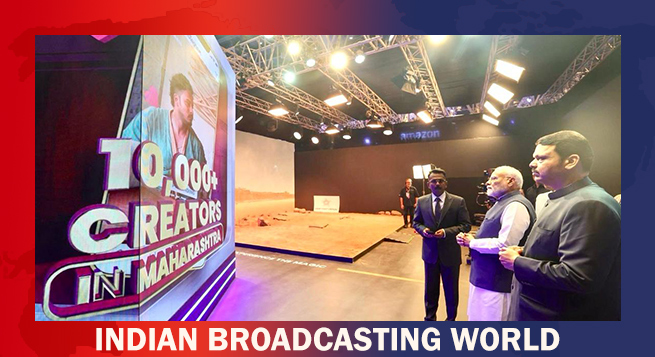 MIB to unveil M&E sector statistical handbook today at WAVES
MIB to unveil M&E sector statistical handbook today at WAVES 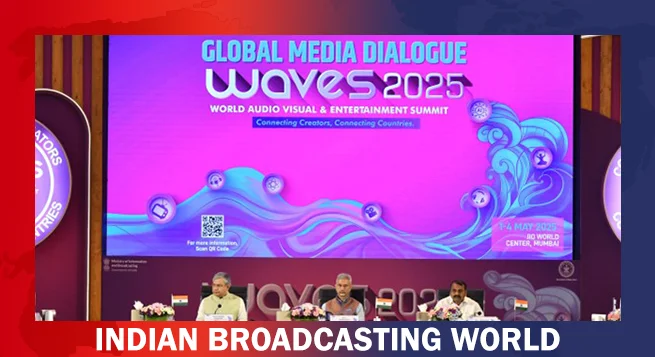 WAVES 2025: Media dialogue backs creativity, heritage & ethics in AI Era
WAVES 2025: Media dialogue backs creativity, heritage & ethics in AI Era 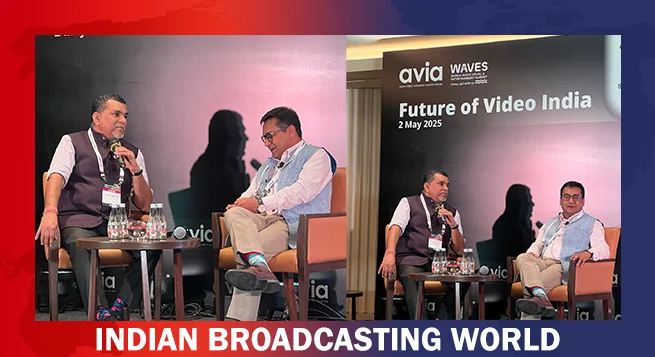 Pay TV leaders chart course for India’s linear TV in digital age
Pay TV leaders chart course for India’s linear TV in digital age 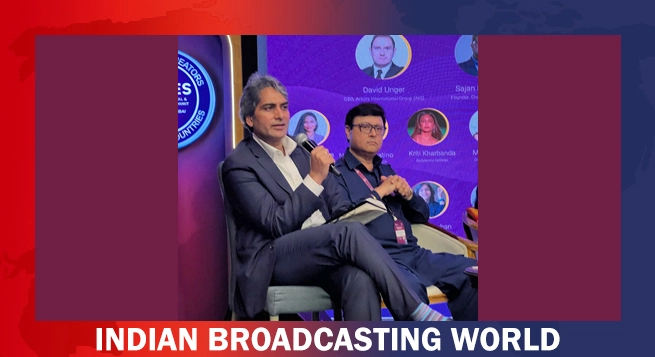 Sudhir Chaudhary announces new show for DD News, says “Good content still has a place” at WAVES 2025
Sudhir Chaudhary announces new show for DD News, says “Good content still has a place” at WAVES 2025 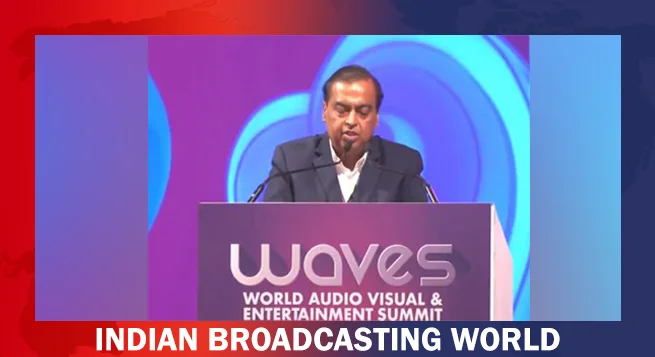 India can lead global entertainment revolution: Mukesh Ambani
India can lead global entertainment revolution: Mukesh Ambani 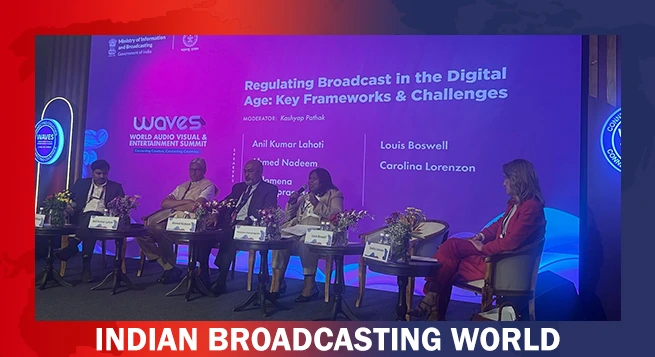 TRAI chief not in favour of separate rules for OTT, legacy b’casters
TRAI chief not in favour of separate rules for OTT, legacy b’casters 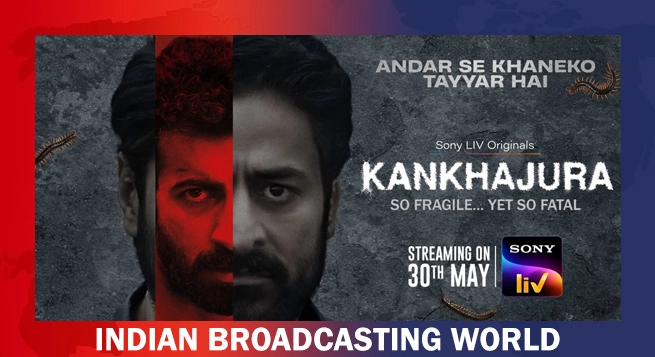 ‘KanKhajura’ start streaming on Sony LIV from May 30
‘KanKhajura’ start streaming on Sony LIV from May 30 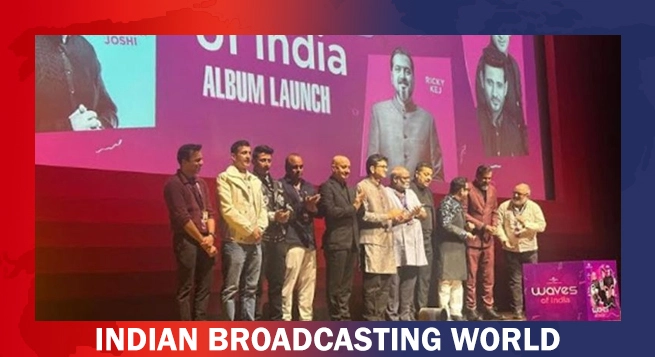 Koyal.AI debuts at WAVES 2025, set to revolutionise music videos with GenAI
Koyal.AI debuts at WAVES 2025, set to revolutionise music videos with GenAI  Zee Cinema to premiere ‘Pushpa 2: The Rule’ on May 31
Zee Cinema to premiere ‘Pushpa 2: The Rule’ on May 31 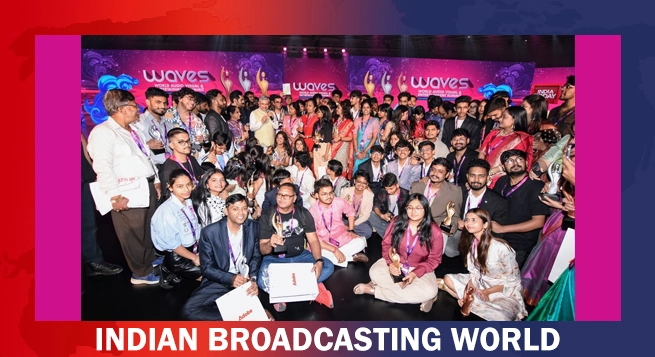 ‘Create in India Challenge’ S1 honours global talent at WAVES
‘Create in India Challenge’ S1 honours global talent at WAVES  Amazon MX Player adds 20+ dubbed international titles
Amazon MX Player adds 20+ dubbed international titles 








